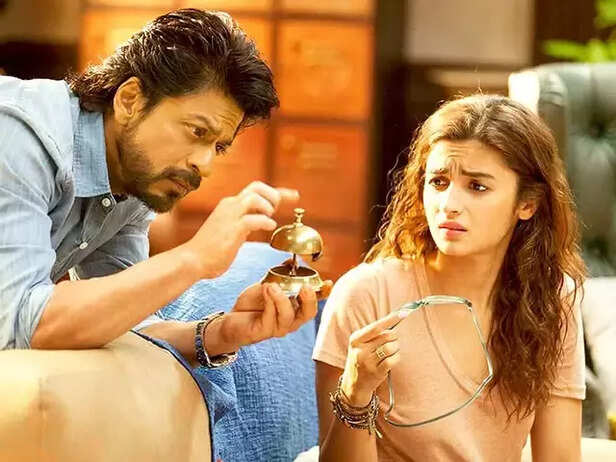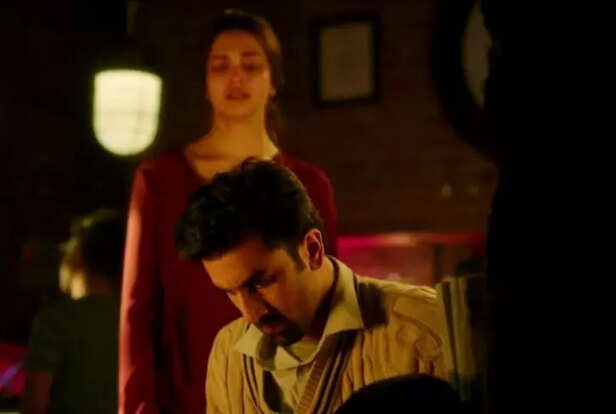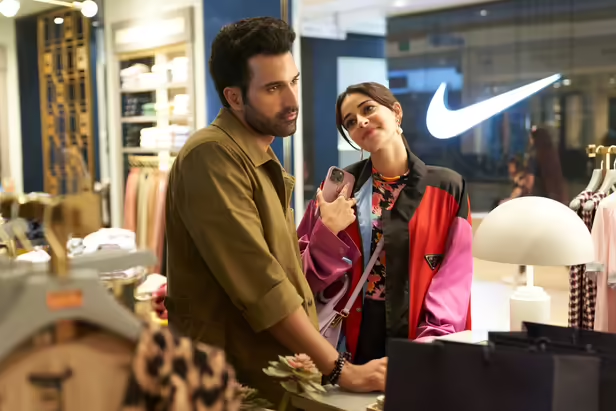Why MEN Aren’t Being Men Anymore: The Decline of Effort in LOVE
Nidhi | Jan 28, 2025, 01:47 IST
Misogynist
Romance in the modern era has seen a dramatic shift. Men who once went to great lengths to win their partner’s heart are now often accused of offering the bare minimum in relationships. From ignoring heartfelt gestures to avoiding accountability, the decline of effort in love is evident. Explore why men aren’t being "men" anymore, what’s changed in relationships over time, and how this evolution has impacted modern romance.
“Marriage used to mean commitment, and love was a promise you fought to keep. Today, it feels like we’re swiping away the very essence of what made relationships magical.”
In a world where love letters have turned into disappearing texts, and grand gestures have been replaced by minimal effort, one can’t help but wonder: what happened to the men who once moved mountains for love? Romance, once built on effort, loyalty, and resilience, now seems to rest on convenience and fleeting connections.
Let’s explore why men aren’t being "men" anymore and how this evolution is reshaping modern relationships.

There was a time when love letters carried the weight of emotions too profound for casual conversation. Each word was a labor of passion, crafted to reflect the depth of affection. Men would wait days, sometimes weeks, for a reply, cherishing the anticipation and treasuring the connection.
Today, even sending a thoughtful text feels like an overwhelming effort for some. Instead of heartfelt messages, responses like “k” or “busy” dominate conversations, leaving women feeling undervalued and questioning if modern romance is alive.
What Changed? The instant gratification culture fostered by dating apps and social media has made meaningful gestures seem unnecessary. When everything is just a swipe or a tap away, the motivation to connect deeply fades. Relationships have become transactional, where effort is seen as an inconvenience rather than a necessity.

In the past, love was synonymous with loyalty. Being committed to one person was celebrated as the pinnacle of romance. Men took pride in proving their dedication, building trust, and nurturing their relationships. They prioritized their partners above all else, making them feel secure and cherished.
Fast forward to today, where casual dating and “situationships” have replaced exclusivity. Many men juggle multiple connections, viewing relationships as temporary distractions rather than long-term commitments. This shift has left women feeling insecure, unappreciated, and often questioning their worth in love.
What Changed? The rise of hookup culture, fueled by the fear of missing out (FOMO), has normalized non-committal behavior. Loyalty has become an exception rather than the rule, with modern dynamics celebrating convenience over depth.

Men of the past were seen as protectors—strong, supportive, and ready to stand against the world for their loved ones. Today, many women feel the opposite. Instead of taking responsibility for their actions, some men deflect issues back onto their partners, using phrases like, “You’re overthinking” or “You’re too demanding.”
This tendency to blame women has eroded the foundation of trust and mutual respect in relationships. Women who once felt safe and supported now face emotional invalidation, leaving them questioning the partnership.
What Changed? Cultural shifts around gender roles and masculinity have left some men confused about their responsibilities in modern relationships. Instead of addressing their shortcomings, they deflect, leading to unresolved conflicts and emotional disconnect.

Romance in the past often involved grand gestures and unwavering determination. Men defied societal expectations, family resistance, and geographical barriers to be with the one they loved. Love was a battle worth fighting, and they embraced the challenges wholeheartedly.
Today, relationships are more likely to end at the first sign of trouble. Rather than working through challenges, many men disengage, choosing to move on instead of fighting for their partners. This lack of resilience leaves women feeling unworthy of effort and abandoned in love.
What Changed? The culture of convenience has replaced perseverance. Modern relationships are often viewed as disposable, with people unwilling to invest the time and energy required to overcome obstacles.

True love requires vulnerability—a willingness to open up and share one’s fears, dreams, and insecurities. In the past, men were unafraid to express their emotions, whether through poetry, letters, or heartfelt conversations.
Today, vulnerability is often mistaken for weakness. Many men suppress their emotions, fearing judgment or rejection. This lack of emotional openness creates a barrier, preventing genuine connection and leaving women feeling isolated in the relationship.
What Changed? Societal expectations around masculinity have evolved, but the pressure to appear strong and unaffected still lingers. Men are often conditioned to suppress their emotions, leading to emotional neglect in relationships.

Traditionally, men took pride in providing emotional, financial, and physical security to their partners. Relationships were a haven where women felt safe and valued.
However, many women now feel burdened by relationships where they are expected to carry both emotional and financial responsibilities. Instead of being a source of support, men often adopt a passive role, leaving their partners to navigate challenges alone.
What Changed? The focus on individualism and self-prioritization has led to an imbalance in shared responsibilities. Relationships are no longer seen as partnerships but as conveniences.

Romantic relationships once offered comfort and peace. Today, toxicity has crept into love, manifesting as manipulation, gaslighting, and disrespect. Women who once found solace in their partners now feel drained by unhealthy dynamics.
What was once a safe space has become a source of anxiety, leaving many questioning if love is even worth pursuing.
What Changed? Social media, pop culture, and the glamorization of toxic behavior have normalized unhealthy relationships, eroding the principles of respect and care.

Perhaps the most glaring shift in modern relationships is the declining value of effort. Men who once planned dates, remembered important milestones, and surprised their partners with thoughtful gestures now struggle to meet even the most basic expectations.
The bare minimum—sending a “good morning” text or showing up for a date—has become the new standard. Women are left longing for the days when love was about making someone feel extraordinary.
What Changed? The fast-paced, distraction-filled nature of modern life has made consistency and thoughtfulness feel outdated. Effort is now seen as optional rather than integral to love.
Men who once viewed love as a responsibility now avoid accountability. From ignoring conflicts to avoiding difficult conversations, some men have distanced themselves from the emotional labor relationships require.
Instead of stepping up, they step back, leaving women to shoulder the burden of maintaining the relationship.
What Changed? A lack of emotional maturity and the influence of a “do what makes you happy” culture have created a fear of commitment and accountability.
The decline of effort in love is not just a reflection of changing times—it’s a call to reevaluate what truly matters in relationships. Love isn’t about convenience; it’s about connection, growth, and mutual respect.
To bring back effort, we need to rediscover the value of vulnerability, accountability, and dedication. After all, love isn’t about doing the bare minimum—it’s about making someone feel seen, valued, and cherished in a way that no one else can. Let’s make love worth the effort again.
In a world where love letters have turned into disappearing texts, and grand gestures have been replaced by minimal effort, one can’t help but wonder: what happened to the men who once moved mountains for love? Romance, once built on effort, loyalty, and resilience, now seems to rest on convenience and fleeting connections.
Let’s explore why men aren’t being "men" anymore and how this evolution is reshaping modern relationships.
1. From Love Letters to Ignored Texts: The Death of Romantic Gestures

Sita Ramam
There was a time when love letters carried the weight of emotions too profound for casual conversation. Each word was a labor of passion, crafted to reflect the depth of affection. Men would wait days, sometimes weeks, for a reply, cherishing the anticipation and treasuring the connection.
Today, even sending a thoughtful text feels like an overwhelming effort for some. Instead of heartfelt messages, responses like “k” or “busy” dominate conversations, leaving women feeling undervalued and questioning if modern romance is alive.
What Changed? The instant gratification culture fostered by dating apps and social media has made meaningful gestures seem unnecessary. When everything is just a swipe or a tap away, the motivation to connect deeply fades. Relationships have become transactional, where effort is seen as an inconvenience rather than a necessity.
2. One-Woman Men Are Becoming a Rare Breed

Ranveer Singh and Deepika Padukone
In the past, love was synonymous with loyalty. Being committed to one person was celebrated as the pinnacle of romance. Men took pride in proving their dedication, building trust, and nurturing their relationships. They prioritized their partners above all else, making them feel secure and cherished.
Fast forward to today, where casual dating and “situationships” have replaced exclusivity. Many men juggle multiple connections, viewing relationships as temporary distractions rather than long-term commitments. This shift has left women feeling insecure, unappreciated, and often questioning their worth in love.
What Changed? The rise of hookup culture, fueled by the fear of missing out (FOMO), has normalized non-committal behavior. Loyalty has become an exception rather than the rule, with modern dynamics celebrating convenience over depth.
3. Blaming Women Instead of Taking Responsibility

Kabir Singh
Men of the past were seen as protectors—strong, supportive, and ready to stand against the world for their loved ones. Today, many women feel the opposite. Instead of taking responsibility for their actions, some men deflect issues back onto their partners, using phrases like, “You’re overthinking” or “You’re too demanding.”
This tendency to blame women has eroded the foundation of trust and mutual respect in relationships. Women who once felt safe and supported now face emotional invalidation, leaving them questioning the partnership.
What Changed? Cultural shifts around gender roles and masculinity have left some men confused about their responsibilities in modern relationships. Instead of addressing their shortcomings, they deflect, leading to unresolved conflicts and emotional disconnect.
4. Fighting for Love vs. Fighting Love

Dear Zindagi
Romance in the past often involved grand gestures and unwavering determination. Men defied societal expectations, family resistance, and geographical barriers to be with the one they loved. Love was a battle worth fighting, and they embraced the challenges wholeheartedly.
Today, relationships are more likely to end at the first sign of trouble. Rather than working through challenges, many men disengage, choosing to move on instead of fighting for their partners. This lack of resilience leaves women feeling unworthy of effort and abandoned in love.
What Changed? The culture of convenience has replaced perseverance. Modern relationships are often viewed as disposable, with people unwilling to invest the time and energy required to overcome obstacles.
5. Vulnerability Is Missing: The Fear of Emotional Depth

Tamasha Movie
True love requires vulnerability—a willingness to open up and share one’s fears, dreams, and insecurities. In the past, men were unafraid to express their emotions, whether through poetry, letters, or heartfelt conversations.
Today, vulnerability is often mistaken for weakness. Many men suppress their emotions, fearing judgment or rejection. This lack of emotional openness creates a barrier, preventing genuine connection and leaving women feeling isolated in the relationship.
What Changed? Societal expectations around masculinity have evolved, but the pressure to appear strong and unaffected still lingers. Men are often conditioned to suppress their emotions, leading to emotional neglect in relationships.
6. From Protectors to Passive Partners

Tamasha Movie
Traditionally, men took pride in providing emotional, financial, and physical security to their partners. Relationships were a haven where women felt safe and valued.
However, many women now feel burdened by relationships where they are expected to carry both emotional and financial responsibilities. Instead of being a source of support, men often adopt a passive role, leaving their partners to navigate challenges alone.
What Changed? The focus on individualism and self-prioritization has led to an imbalance in shared responsibilities. Relationships are no longer seen as partnerships but as conveniences.
7. Toxicity Is Replacing Security

Aishwarya Rai and Abhishek
Romantic relationships once offered comfort and peace. Today, toxicity has crept into love, manifesting as manipulation, gaslighting, and disrespect. Women who once found solace in their partners now feel drained by unhealthy dynamics.
What was once a safe space has become a source of anxiety, leaving many questioning if love is even worth pursuing.
What Changed? Social media, pop culture, and the glamorization of toxic behavior have normalized unhealthy relationships, eroding the principles of respect and care.
8. Effort Has Become an Option, Not a Necessity

Call Me Bae
Perhaps the most glaring shift in modern relationships is the declining value of effort. Men who once planned dates, remembered important milestones, and surprised their partners with thoughtful gestures now struggle to meet even the most basic expectations.
The bare minimum—sending a “good morning” text or showing up for a date—has become the new standard. Women are left longing for the days when love was about making someone feel extraordinary.
What Changed? The fast-paced, distraction-filled nature of modern life has made consistency and thoughtfulness feel outdated. Effort is now seen as optional rather than integral to love.
9. The Decline of Accountability in Relationships
Instead of stepping up, they step back, leaving women to shoulder the burden of maintaining the relationship.
What Changed? A lack of emotional maturity and the influence of a “do what makes you happy” culture have created a fear of commitment and accountability.
Final Thoughts: Can We Bring Back Effort in Love?
To bring back effort, we need to rediscover the value of vulnerability, accountability, and dedication. After all, love isn’t about doing the bare minimum—it’s about making someone feel seen, valued, and cherished in a way that no one else can. Let’s make love worth the effort again.
